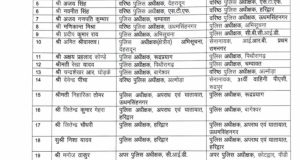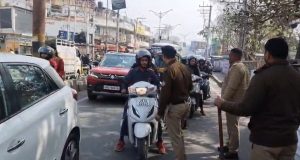Prime Minister Shri Narendra Modi chaired the first meeting of the National Ganga Council in Kanpur, Uttar Pradesh today.
The Council has been given overall responsibility for superintendence of pollution prevention and rejuvenation of River Ganga Basin, including Ganga and its tributaries. The first meeting of the Council was aimed at reinforcing the importance of a ‘Ganga-centric’ approach in all departments of the concerned states as well as relevant Central Ministries.
Today’s meeting was attended by Union Ministers for Jal Shakti, Environment, Agriculture and Rural Development, Health, Urban Affairs, Power, Tourism, Shipping and Chief Ministers of Uttar Pradesh and Uttarakhand, Deputy Chief Minister of Bihar, Vice Chairman Niti Aayog and other senior officials. The state of West Bengal was not present in the meeting and Jharkhand did not participate because of the ongoing elections and the Model Code of Conduct being in force.
Prime Minister, while reviewing the progress of work done and deliberating on various aspects of cleaning river Ganga with a focus on ‘swachhta’, ‘aviralta’ and ‘nirmalta’. He observed that Maa Ganga is the holiest river on the sub-continent and its rejuvenation should embody a shining example of cooperative federalism. Prime Minister said that rejuvenation of Ganga has been a long pending challenge for the country. He noted that a lot had been accomplished since the Government took up ‘Namami Gange’ in 2014 as a comprehensive initiative integrating various government efforts and activities with the aim of pollution abatement, conservation and rejuvenation of Ganga, notable achievements being zero waste creation by paper mills and reduction in pollution from tanneries; but much more needs to be done.
For the first time, the Central Government had made commitment of Rs. 20,000 crores for the period 2015-20 to the five states through which Ganga passes, to ensure adequate as well as uninterrupted water flows in the river. Rs. 7700 crores have already been spent so far, prominently for construction of new sewage treatment plants.
Prime Minister emphasized that an improvement framework for Nirmal Ganga would require fullest cooperation from the public at large and greater awareness through dissemination of best practices from cities situated along the banks of national rivers. Efficiency of District Ganga Committees should be improved in all districts, in order to provide a effective framework for expeditious implementation of plans.
 Dainik Nation News Portal
Dainik Nation News Portal




